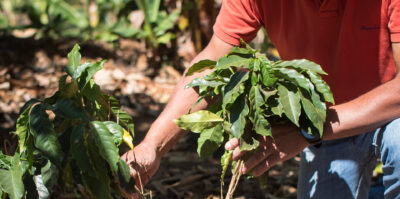Coffee Economies of Scale

Table of Contents
The sourcing and negotiation practices of large coffee roasting companies significantly influence the global coffee economy, impacting producers, boutique roasters, and consumers alike. Due to their extensive market reach, substantial purchasing power, and widely recognized brands, these companies hold considerable sway in shaping coffee market dynamics.
Global Impact on Coffee Producers
Negotiations between large coffee roasters and producers have profound effects on global coffee markets. While stable contracts and premium pricing for sustainably certified beans provide vital financial support to many farmers, small-scale producers often struggle to access these opportunities due to limited resources.
Additionally, the purchasing habits of major coffee roasters can unintentionally trigger market price fluctuations. Although some farmers benefit from fixed-price contracts, the sheer scale of these companies’ influence can lead to suppressed global coffee prices. Such price instability can harm producers operating on thin margins, forcing difficult choices between maintaining coffee quality and financial survival.
Implications for Boutique and Small Coffee Roasters
The dominance of large coffee roasting companies creates significant challenges for smaller, specialty roasters. These boutique roasters prioritize quality, transparency, and building personal relationships with coffee growers. However, their limited size and resources often make it difficult to compete with larger companies for access to premium coffee beans.
Consequently, smaller roasters frequently face challenges securing consistent access to high-quality beans or negotiating equitable pricing. As a result, many resort to sourcing from secondary markets or lesser-known producers. This dynamic compels boutique roasters to differentiate themselves through creative branding, storytelling, and innovation, yet simultaneously restricts their potential for growth and increases their vulnerability to market volatility.
Sustainability and Certification Dynamics
Major coffee roasting companies commonly utilize certifications like Fair Trade and Organic to demonstrate their commitment to sustainability and ethical sourcing. These certifications benefit farmers by promoting better agricultural practices and offering premium payments. However, certification processes can be expensive and demanding, often favoring larger, well-funded farms.
Smaller producers may find the costs associated with obtaining certifications prohibitive, thereby excluding them from lucrative supply chains. Consequently, while certification programs promote sustainability and responsible practices, they can also unintentionally widen the economic divide between smaller and larger coffee producers.
Opportunities for Positive Change
Leading coffee roasters have significant potential to positively influence the coffee industry by adopting more inclusive practices. Supporting smaller producers through capacity-building, infrastructure investments, and meaningful partnerships can create more opportunities for these farmers to enter sustainable and profitable markets. Such initiatives would enhance economic stability across coffee-growing regions.
Furthermore, increasing transparency within the coffee supply chain offers additional benefits. Clearer pricing, straightforward contracts, and equitable negotiations help empower smaller producers and boutique roasters, fostering a healthier, more diverse market that ultimately benefits all participants, including consumers.
Final Thoughts
The practices and strategies of major coffee roasting companies undeniably shape the global coffee economy. Their efforts in sustainability, ethical sourcing, and economic stability through direct trade and certification programs are commendable. However, their substantial market power can unintentionally disadvantage smaller producers and boutique roasters, potentially increasing inequality within the coffee industry.
To build a more resilient and equitable coffee economy, it’s crucial for larger coffee roasting companies to actively balance their considerable market influence with intentional, inclusive support for smaller stakeholders. Doing so will foster greater fairness and sustainability throughout the global coffee supply chain, creating positive outcomes for everyone involved—from producers and roasters to consumers.

On the Rise


